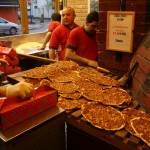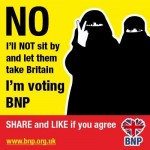Harringey versus Racism and Cultural Homogenization
Title: The role of the food and Turkish restaurants of Harringey Green Lanes in combating racism and cultural homogenization in British identity politics.
By: Erkan Gursel
Course: Politics of Culture
I hear the clinking of spoons against glasses filled with tea, and the occasional shouting by a Turkish man sitting in the corner, “Usta! Buraya bir çay daha lütfen!”, he says. This isn’t Istanbul, but rather a small restaurant in the north London suburb of Harringay Green Lanes. When walking down its roads, one becomes overwhelmed by the smells of Döner and Gözleme permeating the streets of zone three London. For my family, these smells have become a natural remedy throughout our lives in the UK, reminding us of the beautiful cuisine back home on the Turkish-Syrian border. Since moving out of my family home in south London, Green Lanes has adopted the role of a focal cultural safe space for me; one in which I feel welcomed, encouraged to speak my native tongue and excited by the familiarity of the foods on display in the markets and restaurants. Hence, Green Lanes has become a home outside of the family home; a space in which I can freely consume all the dynamics of culture that shape my Turkish identity. One of the most accessible forms of this identity, second only to language, is food and its consumption in the Turkish restaurant. Whether it be the sweet syrup of Baklava or the salty twang of Ayran, I feel a cultural validation that ties me to both my family and native country when engaging in the act of consuming Middle Eastern foods in these spaces. “Garson, bir mezze seçeneği ve bir tabak yaprak dolması lütfen”, the Turkish man in the corner says.
But as I step off the Piccadilly line onto the streets of central London, the cultural no-mans land of my city, this cultural idealism of food I hold begins to transform. I begin to realise a latent motive to my reinforcement of a Middle Eastern identity through food: Britain is a racist state, and my only solace from it is to delve into the most accessible space of Turkish identity to me; Green Lanes and its Turkish restaurants. In Devran or Antepliler I don’t feel judged for the ‘strangeness’ of my name, or the strong smell of spices that may linger on my jumper. Hence, Green Lanes and its foods offer a cultural familiarity that allows many Turkish people like myself in north London to retain and celebrate a native identity in the wake of growing anti-Middle Eastern socio-political rhetoric. In light of this, my report will uncover how food centres such as Green Lanes consequently function as politically resistant cultural entities that aim to challenge the homogenising and marginalising rhetoric of racism rife in the structures of London.
In official London statistics, I see a radical heterogeneity of ethnicity in the capital; one that continues to grow and is virtually incomparable to most cities around the globe. However, across-the-board claims of a successful diversity in the city becomes stagnant when one considers the level of integration non-native ethno-linguistic cultures have experienced throughout the city and its social strata. Phrases like ‘Keep Britain British’ (see above image), and sensationalist headlines by trashy tabloids like the Daily Mail claiming an ‘Islamisation’ of Britain, limit my eagerness to praise London’s ethno-culturally multi-faceted identity. In the presence of such radicalized right-wing political hyperbole, combined with growing instances of public racism and aggression across London, is it really a surprise to see such sedentary cultural centres like Green Lanes in the parts of London with naturally large migrant communities? I believe not. These communities have become reactionary geo-social forms of cultural subversion, ones that focus on opposing the politicization of their ethnicities and choosing instead to provide a safe space for their cultural communities to engage in familiar tradition and custom. Rather than concede to a racial-cultural homogenization, these communities defend and celebrate their distinctiveness, seeking solidarity through inflated numbers.
It is no surprise then that a fundamental way to tackle disintegration through cultural safe-spaces has been by creating ‘ethnic’ food outlets. As Mankekar argues in her research on Indian shopping in the US, “Indian grocery stores in the Bay Area mark the urban landscape with specific signifiers of ethnicity and ‘Indian’ culture and, hence, enable Indian communities to represent themselves both to themselves, and to the dominant community”. The same can be said for the Turkish restaurants of Green Lanes in London. Focusing on serving the local community, these outlets encourage the formation of cultural blocs and spaces in which Turkish peoples can feel comfortable to practice their identity – identities such as language and communal participation in consuming Turkish foods.


